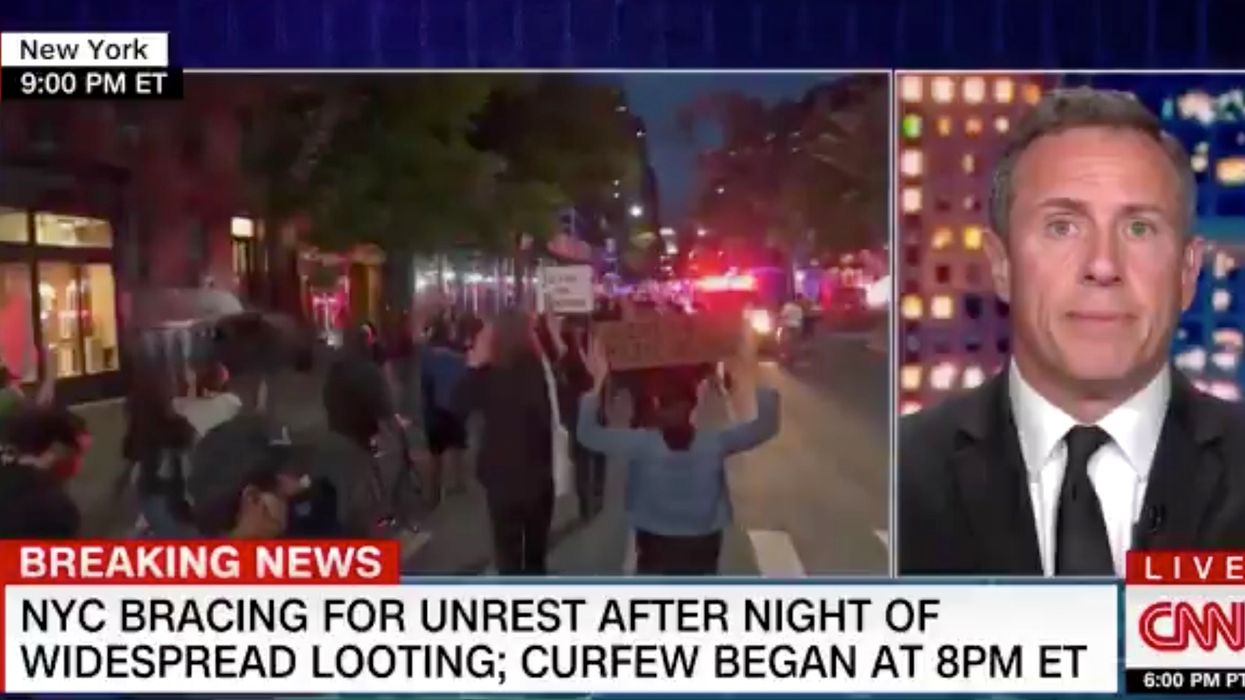
Image via Twitter @SteveGuest screenshot

Chris Cuomo, alleged lawyer
CNN host Chris Cuomo is a law school graduate and licensed attorney — but he apparently does not know what the First Amendment says.
Speaking on his show Tuesday, Cuomo rebuked those who "see the protests as the problem" and demanded that riot critics show him where it says demonstrators must protest peacefully.
"Now too many see the protests as the problem. No, the problem is what forced your fellow citizens to take to the streets: persistent, poisonous inequities and injustice," Cuomo said. "And please, show me where it says protesters are supposed to be polite and peaceful. Because I can show you that outraged citizens are what made the country what she is and led to any major milestone. To be honest, this is not a tranquil time."
Later, Cuomo declared that police officers are those required to remain peaceful — not demonstrators.
"Police are the ones required to be peaceful, to de-escalate, to remain calm," he said.
As many people on social media were quick to point out, there is a very prominent place in American law that says protests must be peaceful: the U.S. Constitution.
People responded:
Indeed, the First Amendment enumerates five well-known rights to all citizens — but there is a caveat added to the fourth right, the right to assemble in protest.
"Congress shall make no law respecting an establishment of religion, or prohibiting the free exercise thereof; or abridging the freedom of speech, or of the press; or the right of the people peaceably to assemble, and to petition the government for a redress of grievances," the First Amendment declares.
There's your answer, Christopher Cuomo, Esq.